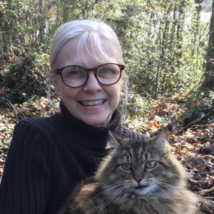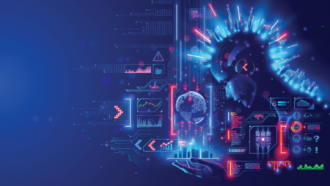
Avery Elizabeth Hurt
Freelance Writer
Avery Elizabeth Hurt is lucky that as a science journalist she gets to indulge her love of science and her insatiable curiosity. She writes articles and books about science and social issues for both adults and kids. When she’s not digging into the latest research or peppering scientists with questions about their work, she enjoys walking in the woods, riding her bicycle and perfecting her killer drop-shot in tennis.

All Stories by Avery Elizabeth Hurt
-
 Plants
PlantsAre plants intelligent? It seems to depend on how you define it
Plants can do a lot of the same things animals do: communicate, learn — even remember. Now scientists want to know if that means they’re intelligent.
-
 Space
SpaceWhy are scientists suddenly interested in UFOs?
For decades, science mostly ignored UFOs. Then in 2015 Navy pilots started reporting them. The U.S. government enlisted scientists to investigate.
-
 Brain
BrainHere’s why being creative is good for your brain
Neuroarts, a new field of science, is finding that exposure to arts can improve learning, behavior and mental health.
-
 Animals
AnimalsInvertebrates are pretty clever, but are they conscious?
Scientists are designing experiments to test whether these animals have self-aware experiences as we do.
-
 Psychology
PsychologyDone right, online learning might be as engaging as face-to-face
Measures of stress offer clues to how engaged students are during online lessons. This could help teachers design more effective classes.
-
 Brain
BrainSome screen time may aid kids’ recovery from concussions
A few hours a day on digital devices may actually aid recovery by connecting kids with friends and giving their brains some stimulation.
-
 Chemistry
ChemistryWas that fingerprint left during a crime? A new test may answer that
In what could be a boon to forensics, Iowa State University chemists have come up with a way to analyze the age of fingerprints.
-
 Tech
TechCan computers think? Why this is proving so hard to answer
In 1950, Alan Turing proposed a test to tell a human from a computer. Today, that Turing test may tell us more about ourselves than about machines.
-
 Psychology
PsychologyLying won’t stretch your nose, but it will steal some brainpower
The science of lying shows that most people don’t lie often. But when they do, it takes a surprising toll on their brains.
-
 Health & Medicine
Health & MedicineIn an emergency, you may want to see Dr. Dog
Emergency room visits by therapy dogs can reduce pain, anxiety and depression in patients waiting for care, a new study finds.
-
 Psychology
PsychologyTo excel at basketball, it’s mind over matter
Get your head in the game. Top basketball coaches value psychological traits more than physical ones when recruiting players, says a new study.
-
 Humans
HumansWant to improve your reading skills? You might just need more space
A simple change by publishers and Web designers could help kids — both with and without dyslexia — read faster and better.